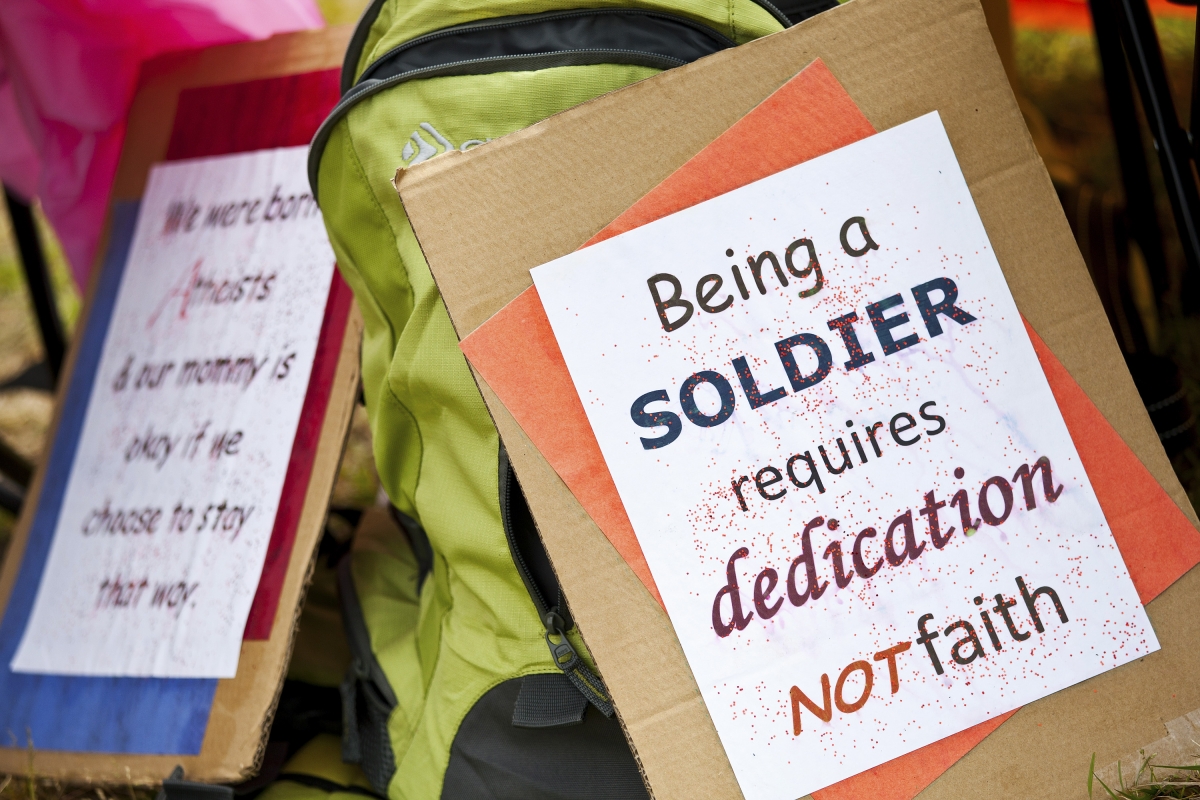80 percent of Americans say religion is shedding public life influence: Pew

Eighty percent of U.S. adults say religion's role in American life is shrinking, but many people are not happy about that finding in the data, a new Pew Research Center survey has found.
Pew said the percentage in its survey published on March 15 is the highest it has been.
The survey also finds that most Americans express support for the principle of separation of church and state.
And, few say they think the federal government should declare Christianity to be the official religion of the United States.
But many Americans do think that even though the U.S. shouldn't officially be declared a Christian country, the federal government should promote Christian moral values.
And half of U.S. adults say they think the Bible should have at least some influence in U.S. laws, including 28 percent who say that if the Bible conflicts with the will of the people, the Bible should have more sway.
And fewer than half of U.S. adults say they have ever heard or read anything about Christian nationalism, including 5 percent who say they have a favorable view of it and 25 percent who say they have an unfavorable view.
And, while, most Americans who say religion's influence is shrinking are not happy about it.
RELIIGION LOSING INFLUENCE
Overall, 49 percent of U.S. adults say both that religion is losing influence and that this is a bad thing.
An additional 8 percent of U.S. adults think religion's influence is growing and that this is a good thing.
A clear majority of U.S. adults—57 percent—express a positive view of religion's influence on American life.
The survey also finds that about half of U.S. adults say it's "very" or "somewhat" important to them to have a president who has strong religious beliefs, even if those beliefs are different from their own.
But relatively few Americans view either of the leading presidential candidates as very religious: 13 percent of Americans say they think President Joe Biden is very religious, while just 4 percent say this about former President Donald Trump.
Generally, there are widespread signs of unease with religion's path in American life.
Such dissatisfaction is not just among religious Americans.
Rather, many religious and nonreligious Americans say they feel that their religious beliefs put them at odds with mainstream culture, with the people around them, and with the other side of the political spectrum.
For example, Pew has a chart that shows a growing share of Americans feel their religious views are at odds with the mainstream.
48 percent of U.S. adults say there's "a great deal" of or "some" conflict between their religious beliefs and mainstream American culture, up from 42 percent in 2020